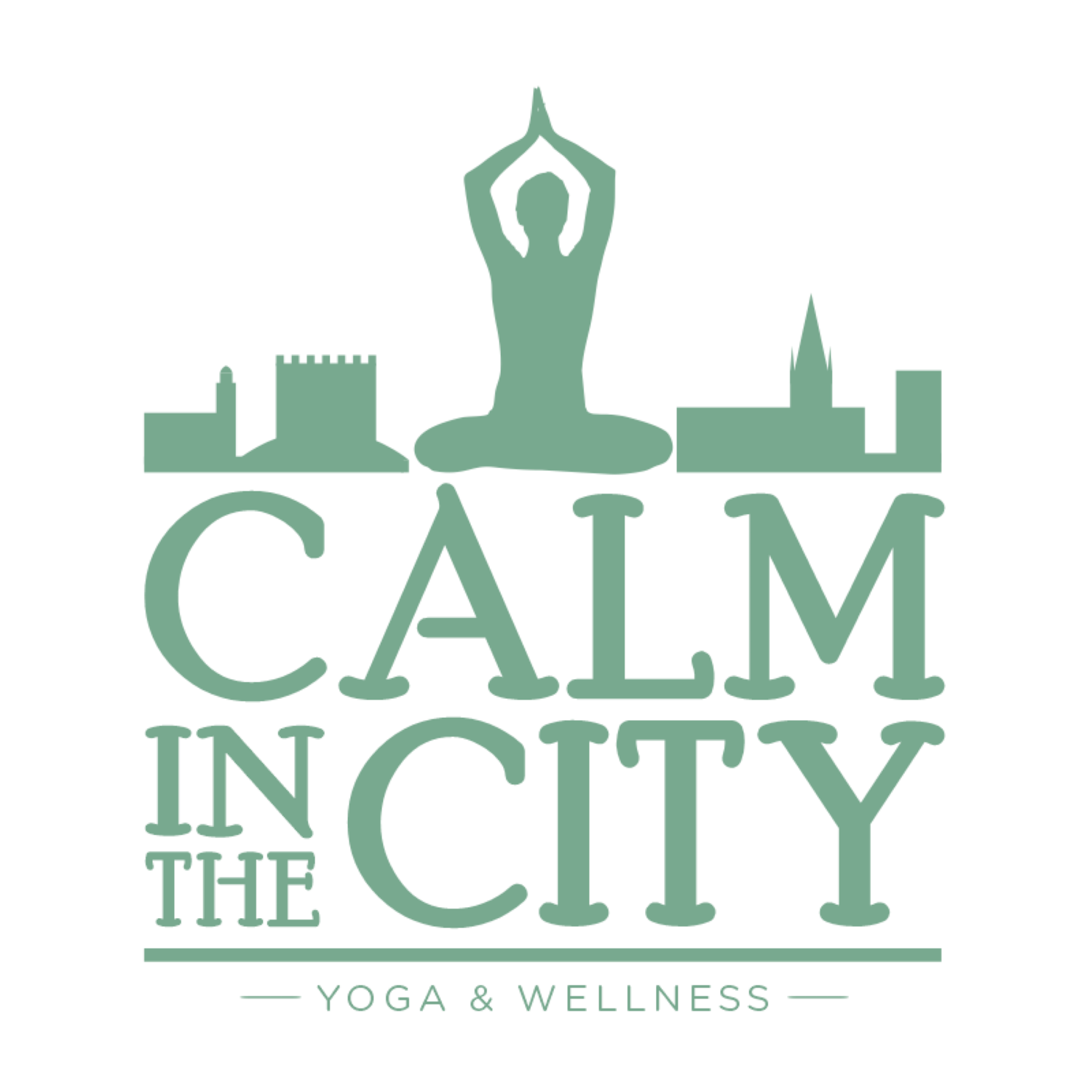Calm in the City Safeguarding Children & Vulnerable Adults Policy - April 2017 (reviewed 18/4/2023)
Introduction
As Yoga Practitioners and Teachers we promote and uphold the principal of ahimsa = non-violence and respect – one of the components of yama, the first of the eight limbs of Yoga. This informs the way we relate to each other, to our students, and to all people with whom we come into contact. More specifically ahimsa means “consideration towards all living things, especially those who are innocent, in difficulty or worse off than we are.” Patanjali Yoga Sutra II – 30 (commentary by TKV Desikachar) Ahimsa is followed by satya= right communication through speech, writings, gesture and actions.
Calm in the City wishes to offer guidance through our Safeguarding Policy so that ahimsa and satya may become the foundation for ‘right action’ for Teachers in any contact they may have with children, young people and vulnerable adults.
Responsibilities
We have a responsibility to protect and to support the welfare of vulnerable members of our community, and to respect their needs and wishes; communicating honestly and with sincerity at all times. It is especially important that we know how to proceed if we suspect that a child, young person or vulnerable adult is at risk because of abuse or neglect. Under the ‘Domestic Abuse Act 2021’ it is the duty of every citizen to share their concerns for the welfare of children, young people or vulnerable adults; firstly with their colleagues and then with their local council social services department.
Calm in the City acknowledges the duty of care to safeguard and promote the welfare of children and vulnerable adults and is committed to ensuring safeguarding practice reflects statutory responsibilities and government guidance. It aims to ensure that regardless of age, gender, religion or beliefs, ethnicity, disability, sexual orientation or socio-economic background, all children, young people and vulnerable adults have a positive and enjoyable experience of participation of Yoga at Calm in the City in a safe environment and are protected from abuse within Calm in the City’s activities.
As part of our Safeguarding Policy, Calm in the City will:
Promote and prioritise the safety and wellbeing of children, young people and vulnerable adults
Ensure all staff and partners of Calm in the City understand their roles and responsibilities in respect of safeguarding and is provided with appropriate learning opportunities to recognise, identify and respond to signs of abuse, neglect and other safeguarding concerns relating to children, young people and vulnerable adults
Ensure appropriate action is taken in the event of incidents/concerns of abuse and support provided to the individual/s who raise or disclose the concern
Ensure that confidential, detailed and accurate records of all safeguarding concerns are maintained and securely stored in accordance with the Data Protection Act 2018
Definitions
Safeguarding is about embedding practices throughout the business to ensure the protection of children, young people and vulnerable adults wherever possible.
In contrast, child and adult protection is about responding to circumstances that arise.
Abuse is a selfish act of oppression and injustice, exploitation and manipulation of power by those in a position of authority. This can be caused by those inflicting harm or those who fail to act to prevent harm.
Abuse is not restricted to any socio-economic group, gender or culture. It can take a number of forms, including the following: Physical, Sexual, Emotional/Psychological, Bullying, Neglect, Financial (or material)
Definition of a child:
A child is under the age of 18 (as defined in the United Nations convention on the Rights of a Child).
Definition of Vulnerable Adults:
A vulnerable adult is a person aged 18 years or over who may be unable to take care of themselves or protect themselves from harm or from being exploited. This may include, but is not limited to a person who is:
Elderly and frail
Has a mental illness including dementia
Has a physical or sensory disability
Has a learning disability
Has a severe physical illness
Is a substance user
Is homeless
Professional Boundaries
Professional boundaries are what define the limits of a relationship between teacher and student. They are a set of standards we agree to uphold that allows this necessary and often close relationship to exist while ensuring the correct detachment is kept in place. Calm in the City expects all staff and partners to protect the professional integrity of themselves and the business. The following professional boundaries must be adhered to (the list is not exhaustive):
Be considerate of the physical, mental, emotional and spiritual needs of students
Be considerate of the preferences and limitations of students
Recognise the power-imbalance between teacher and student and not harass or exploit students physically, psychologically, emotionally, sexually or financially
Take appropriate steps to address any conflict of interest that may arise in dealings with students
Avoid relationships that could compromise the integrity of the teacher-student relationship
Managing Information
All staff and partners must be aware that they have a professional duty to share information with other agencies in order to safeguard children and vulnerable adults. The public interest in safeguarding children and vulnerable adults may override confidentiality interests. However, information will be shared on a need to know basis only. All staff and partners must be aware that they cannot promise students that they will keep secrets.
If you have Safeguarding concerns:
If any teacher, volunteer, or member of staff has reason to believe that abuse is or may be taking place, they have a responsibility to act on this information. If a child, young person or vulnerable adult discloses abuse to you directly, use the following principles to respond to them:
Assure them that you are taking the concerns seriously
Do not be judgemental or jump to conclusions
Listen carefully to what they are telling you, stay calm, get as clear a picture as you can.
Use open ended questions
Do not start to investigate or ask detailed or probing questions
Explain that you have a duty to inform the local authority Safeguarding Team
Reassure the child/vulnerable adult, but do not make promises of confidentiality, the child, young person or vulnerable adult needs to know you may need to share this information.
Your responsibilities are:
To take action to keep the child, young person or vulnerable adult safe if possible. If an urgent police presence is required to keep someone safe-call 999.
If the person needs urgent medical assistance such as an ambulance- call 999
If a crime has occurred, be aware of the need to preserve evidence
Clearly record what you have witnessed or been told, record your responses and any actions taken.
Sharing Concerns with Parents/Carers/Guardians
There is always a commitment to work in partnership with parents or carers where there are concerns about their children. Therefore, in most situations, it would be important to talk to parents, carers or guardians to help clarify any initial concerns. For example, if a child seems withdrawn, there may be a reasonable explanation. He/she/they may have experienced an upset in the family such as a parental separation, divorce or bereavement.
When it is not appropriate to share concerns with Parents/Carers/Guardians
There are circumstances in which a child, young person or vulnerable adult might be placed at even greater risk if concerns are shared (e.g. where a parent, carer or guardian may be responsible for the suspected abuse or not able to respond to the situation appropriately). In these situations or where concerns still exist, any suspicion, allegation or incident of abuse must be reported to the Local Authority Safeguarding Board or the Police, who will advise on contacting parents.
Document the concern and any actions or decisions taken
Ensure all actions and decisions are fully recorded. It is possible that your records may be required as part of an enquiry, be as clear and accurate as you can.
Record the reasons for your decisions and any advice given to you in making these decisions.
Ensure that appropriate records are maintained, including details of: The nature of the safeguarding concern/allegation, the decision of the organisation to raise a concern or not
How to Raise a Safeguarding Concern
To raise a safeguarding concern in Norfolk contact 0344 800 8020.
It may help you to read this form to ensure you have all necessary information before calling; Safeguarding Checklist
Or if the person is not at immediate risk of harm, fill in form: https://www.norfolk.gov.uk/care-support-and-health/protecting-someone-from-harm/help-an-adult-at-risk-of-harm/report-a-concern
This policy was written on 18/4/17 by Rachel Cross, owner at Calm in the City and will be reviewed no later than 3 years from this date or before if new legislation comes into force.
Policy reviewed: 18/4/2023 by Rachel Cross (Next review due 18/4/2026)


